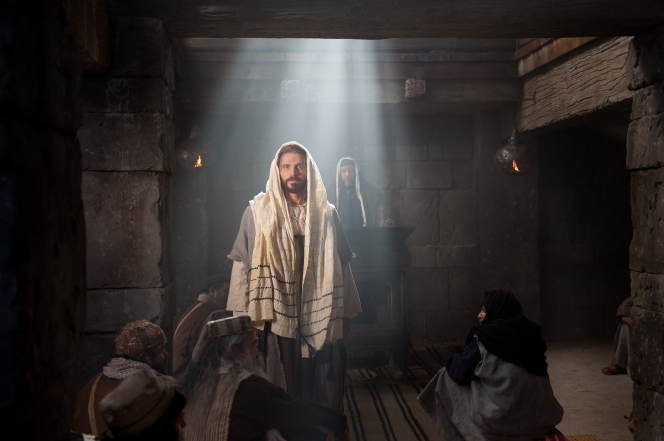Idaho, USA
To answer my own questions, I would like to use an example from the Book of Mosiah with the people of Limhi and the people of Alma. The common beginning thread for what happened to these two groups of people begins with the prophet Abinadi’s visit to the people of Noah.
Abinadi’s Warning
20 And it came to pass that there was a man among them whose name was Abinadi; and he went forth among them, and began to prophesy, saying: Behold, thus saith the Lord, and thus hath he commanded me, saying, Go forth, and say unto this people, thus saith the Lord—Wo be unto this people, for I have seen their abominations, and their wickedness, and their whoredoms; and except they repent I will visit them in mine anger.
21 And except they repent and turn to the Lord their God, behold, I will deliver them into the hands of their enemies; yea, and they shall be brought into bondage; and they shall be afflicted by the hand of their enemies.
22 And it shall come to pass that they shall know that I am the Lord their God, and am a jealous God, visiting the iniquities of my people.
23 And it shall come to pass that except this people repent and turn unto the Lord their God, they shall be brought into bondage; and none shall deliver them, except it be the Lord the Almighty God.
24 Yea, and it shall come to pass that when they shall cry unto me I will be slow to hear their cries; yea, and I will suffer them that they be smitten by their enemies.
25 And except they repent in sackcloth and ashes, and cry mightily to the Lord their God, I will not hear their prayers, neither will I deliver them out of their afflictions; and thus saith the Lord, and thus hath he commanded me.
2 Yea, wo be unto this generation! And the Lord said unto me: Stretch forth thy hand and prophesy, saying: Thus saith the Lord, it shall come to pass that this generation, because of their iniquities, shall be brought into bondage, and shall be smitten on the cheek; yea, and shall be driven by men, and shall be slain; and the vultures of the air, and the dogs, yea, and the wild beasts, shall devour their flesh.
3 And it shall come to pass that the life of king Noah shall be valued even as a garment in a hot furnace; for he shall know that I am the Lord.
4 And it shall come to pass that I will smite this my people with sore afflictions, yea, with famine and with pestilence; and I will cause that they shall howl all the day long.
5 Yea, and I will cause that they shall have burdens lashed upon their backs; and they shall be driven before like a dumb ass.
6 And it shall come to pass that I will send forth hail among them, and it shall smite them; and they shall also be smitten with the east wind; and insects shall pester their land also, and devour their grain.
7 And they shall be smitten with a great pestilence—and all this will I do because of their iniquities and abominations.
Alma gained several hundred followers. They were hunted by the king and were forced to flee into the wilderness to hide from the king’s army. As promised, the Lamanites came in and took the people of Noah captive.
Limhi
Every word of Abinadi was fulfilled. Their trials and suffering were not just as punishment for their sins, but to humble them so they would turn to the Lord and rely on Him for deliverance. This is what the Lord offered them in the beginning, but they hardened their hearts against Abinadi’s words and would not repent.
Alma
Limhi’s people were captives of the Lamanites, but Alma’s people were captives of the Lamanites who were led by Amulon, who personally hated Alma. There was a level of vindictive and spiteful rule involved with Amulon’s governance.
Miracles of Obedience
- The Lord warned Alma of the coming of the king’s army, allowing them time to escape destruction.
- They were led to a bountiful land with pure water where they could prosper.
- When the Lamanite armies found them the Lord softened the hearts of the Lamanites so they wouldn’t kill Alma’s people. The Lord covenanted with Alma’s people that he would not only deliver them from bondage, but that he would lighten the burdens they were being forced to bear. Those burdens would become so light that they wouldn’t even notice them on their backs. He would do all of this because of their obedience.
- The Lord caused the guards to fall asleep, allowing the whole group to walk pass them and escape back to Zarahemla.
Lessons to be Learned
Miracles are provided by the Lord to confirm our faith. They are not given without faith being demonstrated first, unless the miracle is given to condemn us. Here is my original paragraph of questions
“If being obedient to the commandments doesn’t protect us from harm and trials in this life then why are we being obedient? What are we supposed to gain from keeping the commandments? Why should we be fully committed – all in – when it comes to our devotion to the Lord?”
- Life isn’t about ease and comfort, it is about learning to be like Christ. Those lessons are hard, difficult, and can only be learned from great trials. Depth of love can only come from depths of sorrow. We are in mortality to increase our spiritual capacities.
- Keeping the commandments may not protect us from hardships in this life, but our obedience will allow us to keep our perspective as to why these things are happening. Alma’s people demonstrated for us that we can still find internal peace and love, even in the middle of adversity. This can only come from obedience to the commandments.
- By obedience to the commandments we gain spiritual depth, which is the purpose for this life. Our obedience draws us closer to the source of all strength, the Spirit, our Savior and our Father in Heaven.
This is what I mean by being “all in.” Alma’s people, once converted, became all in. They were going to be obedient no matter what tragedy befell them. Because of their continued obedience and humility the Lord was able to turn their trials into great stepping stones of spiritual maturity. They became even more righteous because they showed the Lord they would remain faithful no matter what happened around them.
We have the same challenges to face, though probably not by way of an enemy army. We all need to commit ourselves to being “all in” when it comes to daily observance and obedient behavior. And when we finally take that one-way plunge and commit our lives to the Lord, he will be able to work miracles for us the way he did for the people of Alma.
Latest posts by Kelly Merrill, Moroni Channel (see all)
- Federal Judge Dismisses Fraud Lawsuit Against Latter-day Saint Church Over Tithing Funds - April 18, 2025
- TikTok Breaks as Viral “Missionary Trend” Has Missionaries Dancing to a Primary Classic - April 17, 2025
- Makati 3rd Ward YSAs Set Sail for Connection and Healing - April 7, 2025
- SpaceX’s Starship Achieves Historic Launch and Return in Major Step Toward Mars Exploration - October 16, 2024



